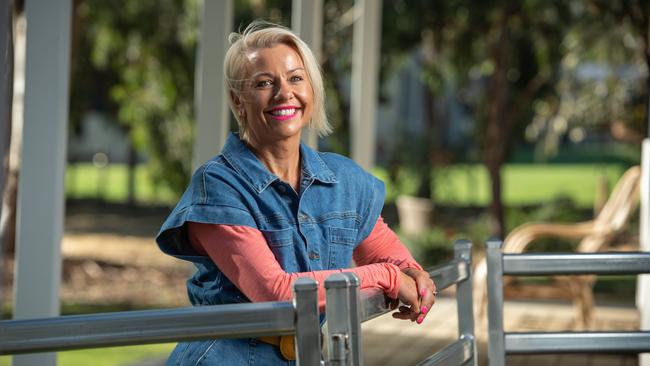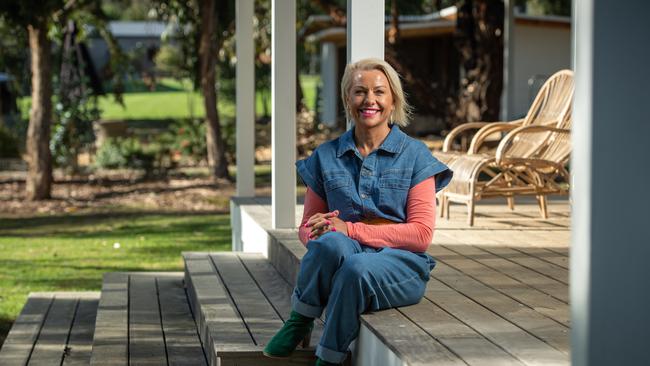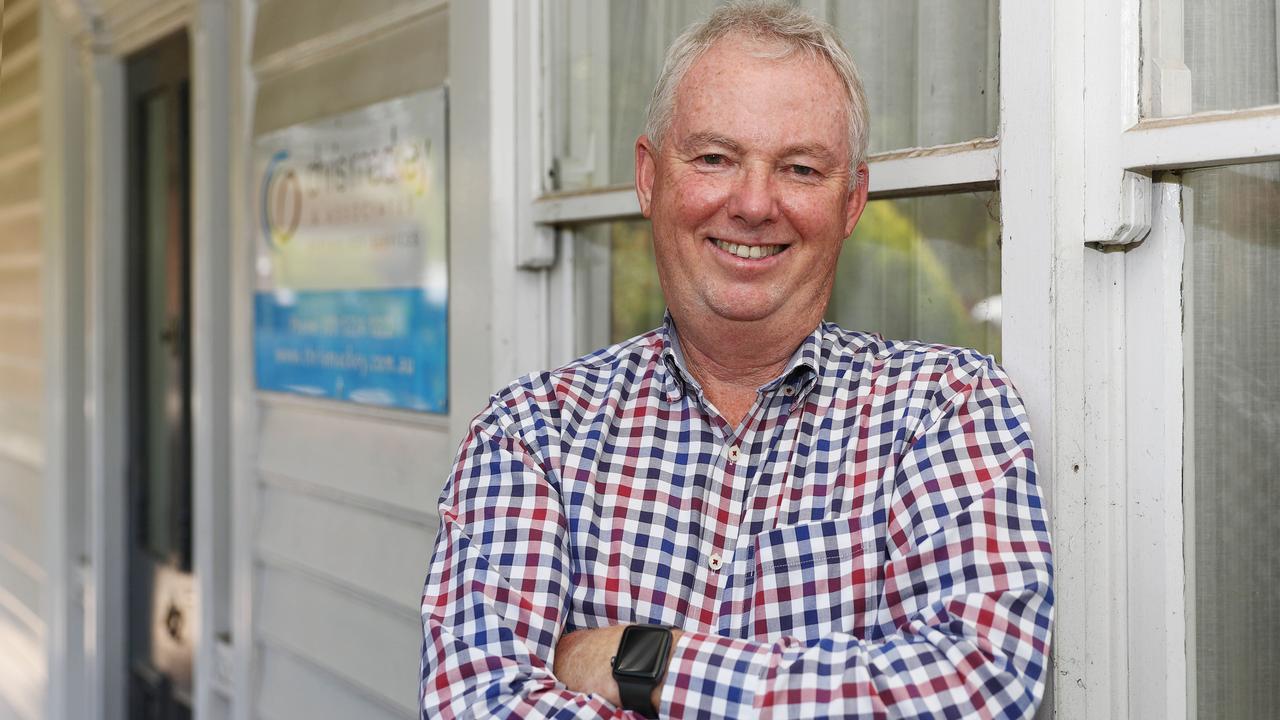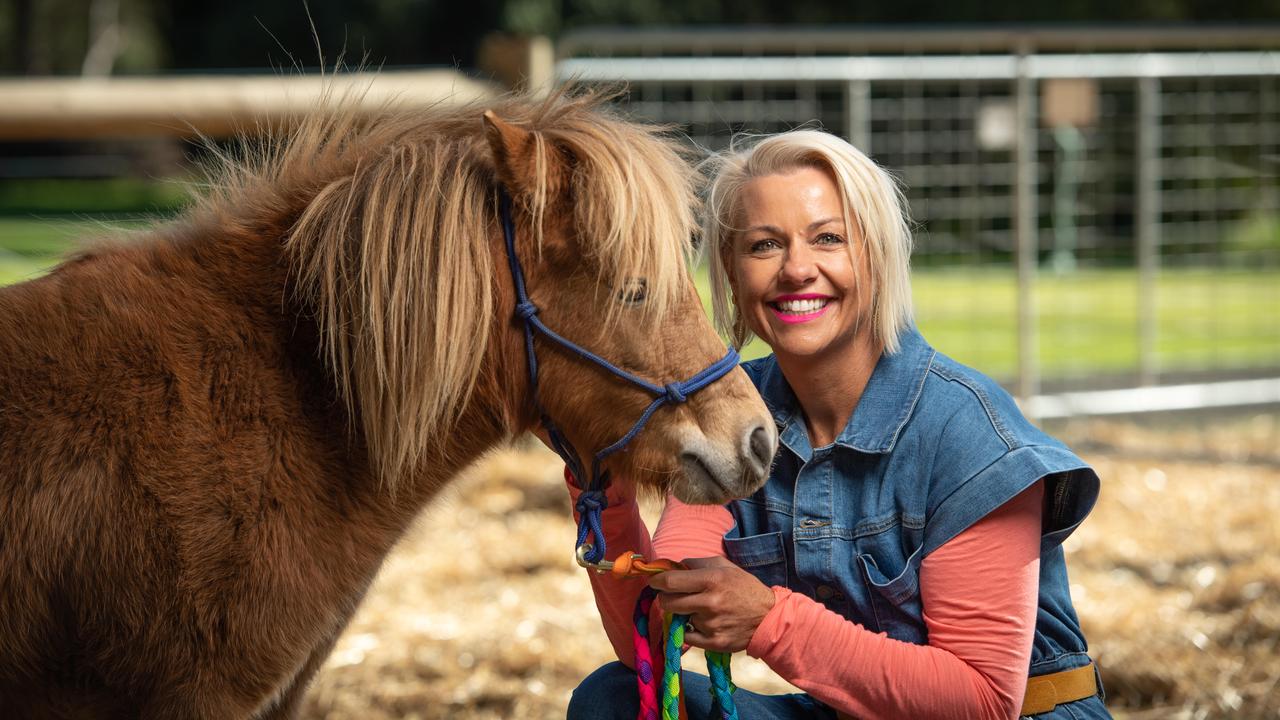Lifeline Geelong crisis supporter explains what it’s like to answer suicidal calls
A woman who answers calls at Lifeline Geelong has revealed what it’s like to help people in their darkest moments, and which calls have stayed with her the most. TRIGGER WARNING: Mental health, self-harm and suicide

Geelong
Don't miss out on the headlines from Geelong. Followed categories will be added to My News.
For shifts of four hours at a time, Josie Cowley helps people who are considering taking their own life.
You wouldn’t know to look at her that the Wallington resident is consistently dealing with people in their darkest moments, often talking them off a ledge with just a short phone conversation.
With a bright smile and even brighter demeanour, it becomes clear within the first five minutes of chatting with Josie what a positive influence she’s having on the world.
She’s been one of the crisis supporters at Lifeline Geelong for a year, taking on about three shifts a week.

Josie says she’s noticed an increase in the number of people calling the service, and describes the role as sitting with people in their pain or distress.
Crisis supporters do not lend advice to people, but help them workshop through problems using inner resources, and linking them to exterior sources if needed.
“A half an hour phone call, it really can make a big difference to people – especially those people that are fighting for their lives, basically,” she says.
“Some people are fighting for their lives on the daily, and trying to cope with their pain – that phone call can be a big relief.”
As of June, 2023, 31,678 people had contacted the Geelong Lifeline centre.
The Covid-19 pandemic’s effect on mental health can be seen through the uptick in people using the service, increasing from 41,288 in 2019, to 52,009 in 2020, 53,588 in 2021, and 58,518 in 2022.
Josie, who has completed a counselling diploma, says speaking with people who are in a deeply negative headspace can be challenging.
“For some people it’s quite imminent where the thing they’re planning on taking their life with is sitting right next to them, or they’ve set something up, and they’re crying out for you to help them to not go through with it,” she says.
“For someone to feel that dreadful that they just can’t tolerate living in that agony, it’s just unfair, cruel.
“When it comes to that, there’s just something that comes over you, where it’s like this person is in big trouble, and you need to think clearly and calmly.”
Josie says she has strategies in place to work through any uncomfortable feelings she has at the end of shifts, which work alongside Lifeline’s consistent training and education.
But there are some calls that stay with her anyway.
“It’s the calls from kids that are my kids’ ages (20 and 17),” she says.
“Or the calls where kids don’t have anyone to play with at school, or hang out with on the weekends – they really get to me.”
Josie says there have been callers who hang up, either because they get embarrassed, or frustrated, or sometimes they feel it’s not helping.
She says a lot of the time callers will be people feeling lonely, and it’s a “privilege” to make them feel there’s someone who’s listening.
“Loneliness can be extremely painful,” she says.
“Sometimes we think about Lifeline and we just think ‘suicide’ – and obviously that’s a big part of it – but other things, like prevention, are (part of it) too.”

Josie says to be effective in her role, she has to know how to look after herself.
She says it’s crucial for crisis supporters to ground themselves before a shift, and have a debrief after.
“To stay healthy in that role, you have to look after yourself,” she says.
“Afterwards, you always have a debrief with a supervisor, and we’re taught a lot about self care.
“It takes about half an hour to drive home, so by the time I’m home, I’ve thought about it, processed it, and I leave it there.
“It’s really nice to have a supportive family to come home to, and a nice environment.”
Principal psychologist Chris Mackey says it’s important for people in roles like Josie’s to be empathetic, have a natural curiosity, and want to help people.
He says they also need to be able to manage their own emotions and tolerate stressful situations where there’s a degree of uncertainty.
“It’s important to recognise people are ultimately responsible for how they manage things in their own life, rather than to have a controlling or overly rescuing attitude toward others,” he says.
“It also helps to have a strong sense of hope and an underlying belief that people likely have the resources within them to ultimately manage even enormous challenges.”
Josie says she joined the Lifeline team because she wanted to help as many people as she could.
“I was pretty keen to get out and help and use my learned skills and natural ability,” she says, with a warm disposition that surely comes in handy in her role.
“Lifeline seemed like the place to be – they provide you with so much support, there’s debriefing and supervision, as well as ongoing learning.
“It might be extra training with domestic violence, or people with autism – it’s wide and varied, and keeps us informed and knowledgeable on a variety of issues.”

Mr Mackey says ongoing training helps people to stay motivated and interested in their roles.
He says support and supervision is also needed to deal with “unfortunate situations” where they’re exposed to various forms of harassment.
“It’s disappointing to hear that volunteers might be exposed to such behaviour, but they are,” he says.
Josie says there are sometimes “unwanted” calls, including people seeking phone sex.
She says she needs to listen carefully, in case someone’s in an actual crisis, but politely hangs up if it’s confirmed inappropriate.
“I think they’re obviously unhealthy in their mind,” she says.
“There’s part of me that thinks ‘you haven’t found the help you need, it’s a shame that you’re using time up from people that are in chronic distress’ but at the same time, I know they’re troubled.”
Mr Mackey says it’s important for people to know they don’t have to feel isolated, or like they have to handle situations on their own.
“I personally know what it is like to feel depressed and suicidal,” he says.
“I learnt the importance of not always having to handle things on your own, and that there was always some kind of support available.”
Josie says she doesn’t know where people would be without Lifeline, as she struggles to find the words to describe its impact.
“There’s so many people that rely on it,” she says.
“You can ring Lifeline for anything. Everybody is important, and everybody’s issue is important.”
Originally published as Lifeline Geelong crisis supporter explains what it’s like to answer suicidal calls





